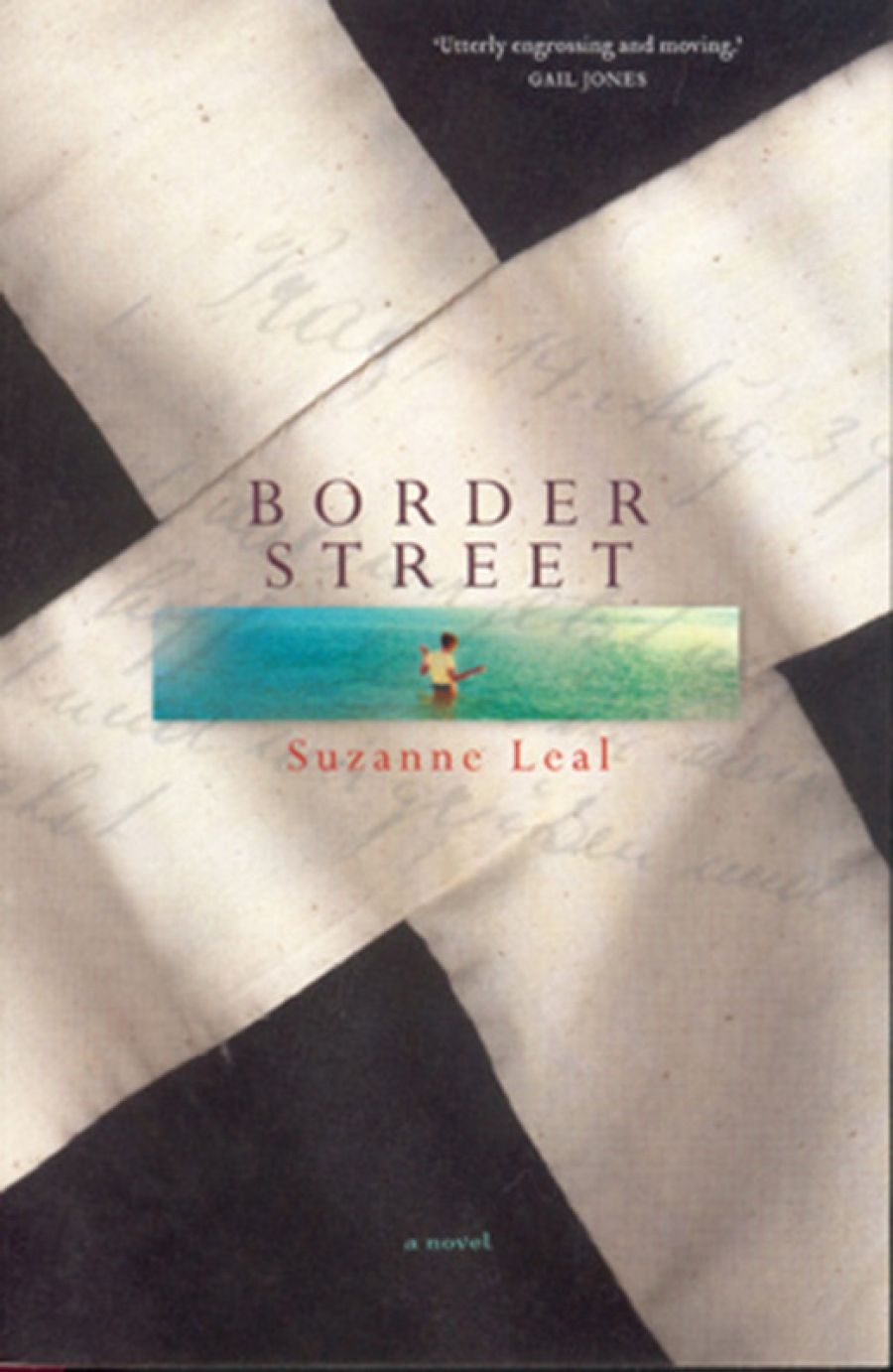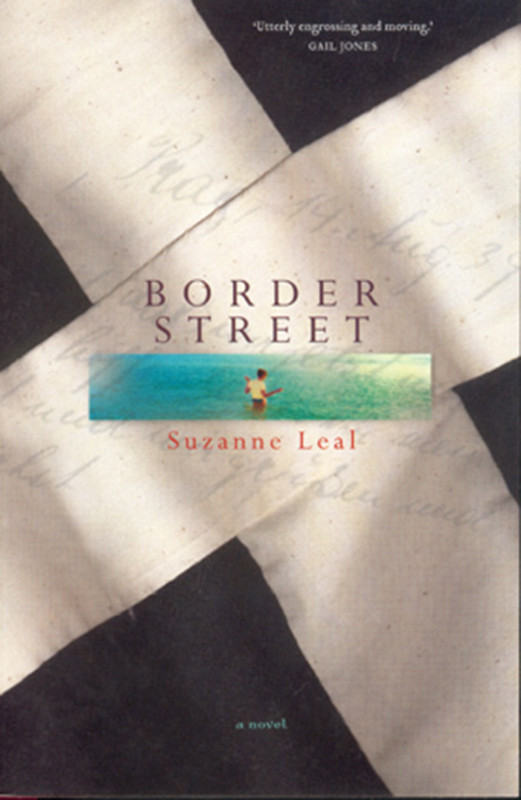
- Free Article: No
- Contents Category: Fiction
- Review Article: Yes
- Article Title: Bridging the distance
- Online Only: No
- Custom Highlight Text:
Halfway through Border Street, an ageing Holocaust survivor describes a night spent standing in the snow at Dachau. His companion, a young Australian woman desperate to understand what he has been through, tries to simulate his ordeal: she wades waist-deep into the winter surf and is shocked by the terrible cold. It is a futile, melodramatic gesture, but a touching one as well; here and throughout this quietly affecting first novel, Suzanne Leal explores the limits of human sympathy with compassion, understatement and tender humour.
- Book 1 Title: Border Street
- Book 1 Biblio: Scribe, $32.95 pb, 336 pp
- Book 1 Cover Small (400 x 600):

- Book 1 Cover (800 x 1200):

It is 1997: Kate and Cameron, a pair of twenty-something lawyers, rent half a house in Sydney’s eastern suburbs. Their elderly landlords, Frank and Vera, are affectionate and solicitous. Before long, they have embraced the young couple and are popping in unannounced for friendly chats. Cameron finds this sudden bond a little suffocating, but Kate, intrigued by Frank’s past and propelled by her own vague literary ambitions, encourages it. Their casual chats become formal interviews; soon, they are meeting every Sunday so that Frank can talk and Kate can listen and record.
Frank’s stoic account of his experiences as a young Czech Jew is devastating, and his voice – proud, mischievous and melancholy – dominates the novel. Were this a straightforward ‘story within a story’ narrative, his history alone would have made for a dramatic and thought-provoking novel. Leal goes further, and the result is a more honest, more ambitious book. In examining Kate’s reactions to Frank’s story, Leal forces readers to confront their own assumptions about strength, survival and human relationships. It is, yes, a first novel about a woman researching her first novel; this is never, however, self-consciousness for its own sake, but as a well-chosen vehicle for some difficult moral questions.
Having prepared herself for a particular kind of story, Kate is frustrated when this is not what Frank provides. His story includes selflessness and heroism, but not always in the easy, undiluted form Kate craves. When he escapes from a labour camp, she cannot understand why he leaves his best friend behind. He is unapologetic:
This is such an adventure story idea, that we should escape together … Here together as we are in the park, it is impossible for me to properly describe the situation I was in. Only that it occurred to me that I would not survive. I needed to survive, so I left. Full stop. There was nothing else and no one else to consider.
His relationship with Vera also troubles Kate; again, pragmatism and self-preservation complicate what she had hoped would be a simple love story. Here and elsewhere, Frank challenges Kate’s ideas about love, grief, strength and suffering. He resists her attempts to quantify pain, and is reluctant to take credit for having survived what others did not. ‘It is not such a competitive thing, this sadness’, he tells her when she questions her own right to grieve; ‘It is not who is the first, the second the third. Yours is for you, it is of not a consequence what it is for another.’ Sorrow, he reminds us, is at once universal and utterly individual.
In describing Kate’s efforts to understand Frank’s sadness, Leal uses the unremarkable details of everyday life to surprising effect. On nearly every page, humdrum tasks and routine gestures – sweeping leaves, making coffee, hanging the laundry – are described with the same precision as Frank’s dreadful memories. In simple, careful prose, Leal creates a picture of cosy domestic stability which quietly but dramatically underscores Frank’s story. In one sense, the cheerful ordinariness of Kate’s world prevents her from imagining what Frank and Vera have seen. As a successful young woman in peaceful, prosperous Australia, she can never entirely understand her neighbours’ wartime experience. By describing in such detail the light, predictable rhythms of Kate’s life, Leal illustrates – for Kate and for the reader – the unbridgeable distance between contemporary Australia and 1940s Europe.
In another sense, however, these ordinary domestic scenes are precisely where empathy is to be found. Frank’s own story is full of the same quotidian detail; as Kate learns, it is by imagining ‘the everyday stuff’ – food, clothing, bedding, bathing – that she can best understand what Frank’s ordeal entailed. This familiar domestic level is also where serious crimes are committed: Frank describes the terrible, unimagined consequences of acts inspired by pettiness and short-sightedness rather than unfathomable evil. This is of course familiar territory; like Kate, we are all well versed in abstractions about the Holocaust. Leal’s achievement is to have explored these abstractions while reminding us of the physical, individual, intimate human stories at their heart.
This is a deceptively quiet novel. Beneath Leal’s simple prose and gentle humour is an astute and subtle study of grief, love and the value of human intimacy – however complex and imperfect it may be.


Comments powered by CComment